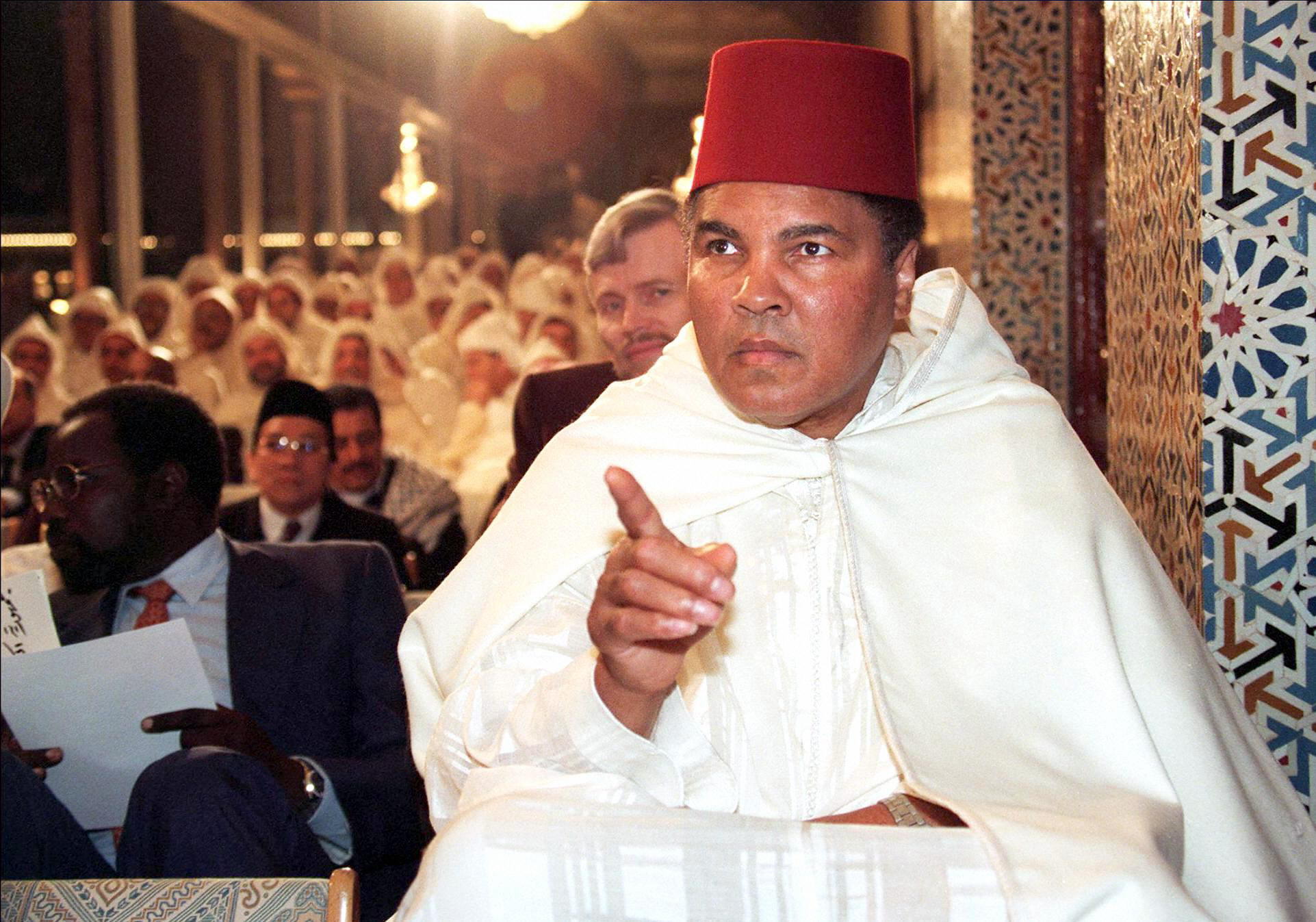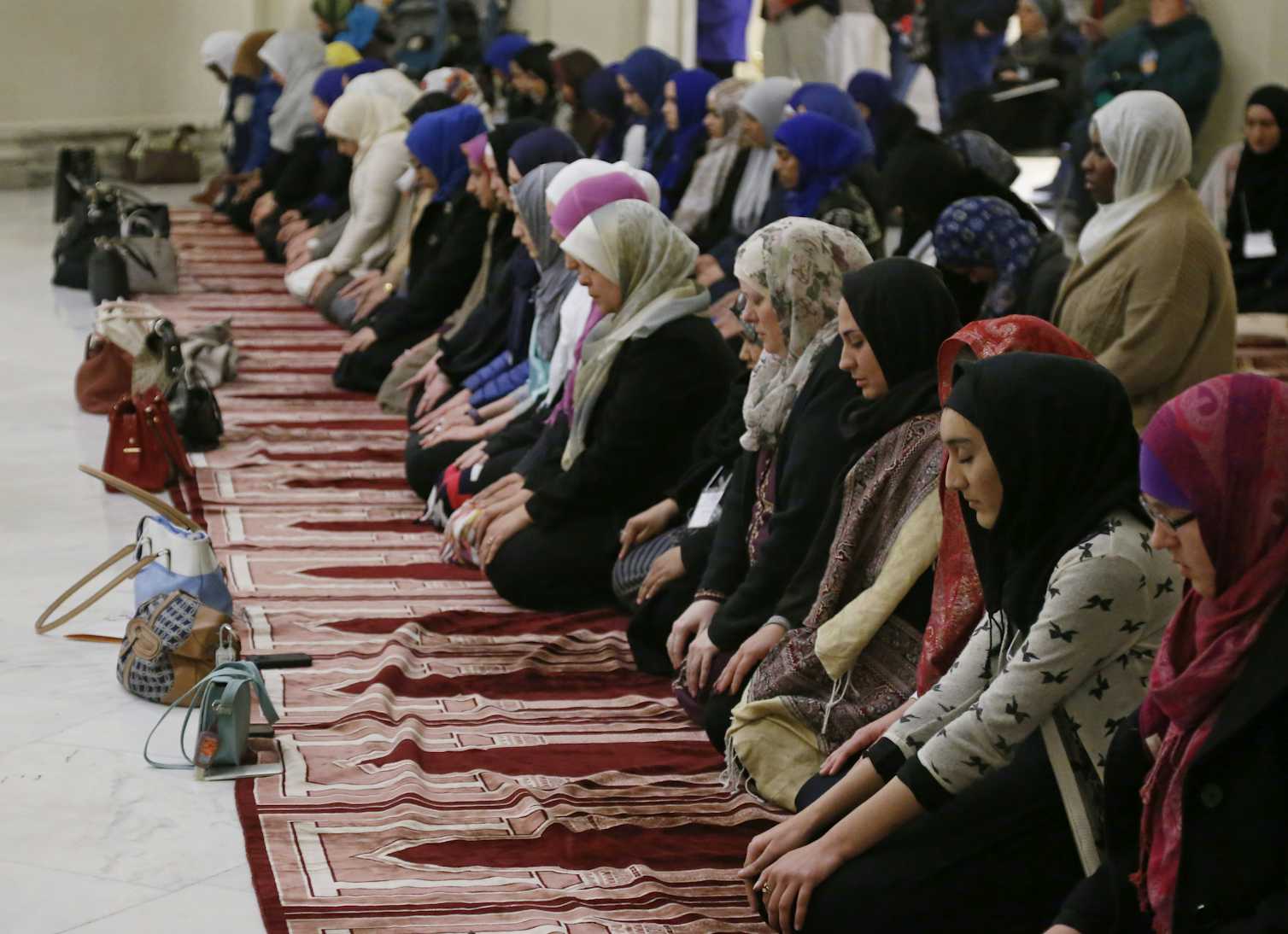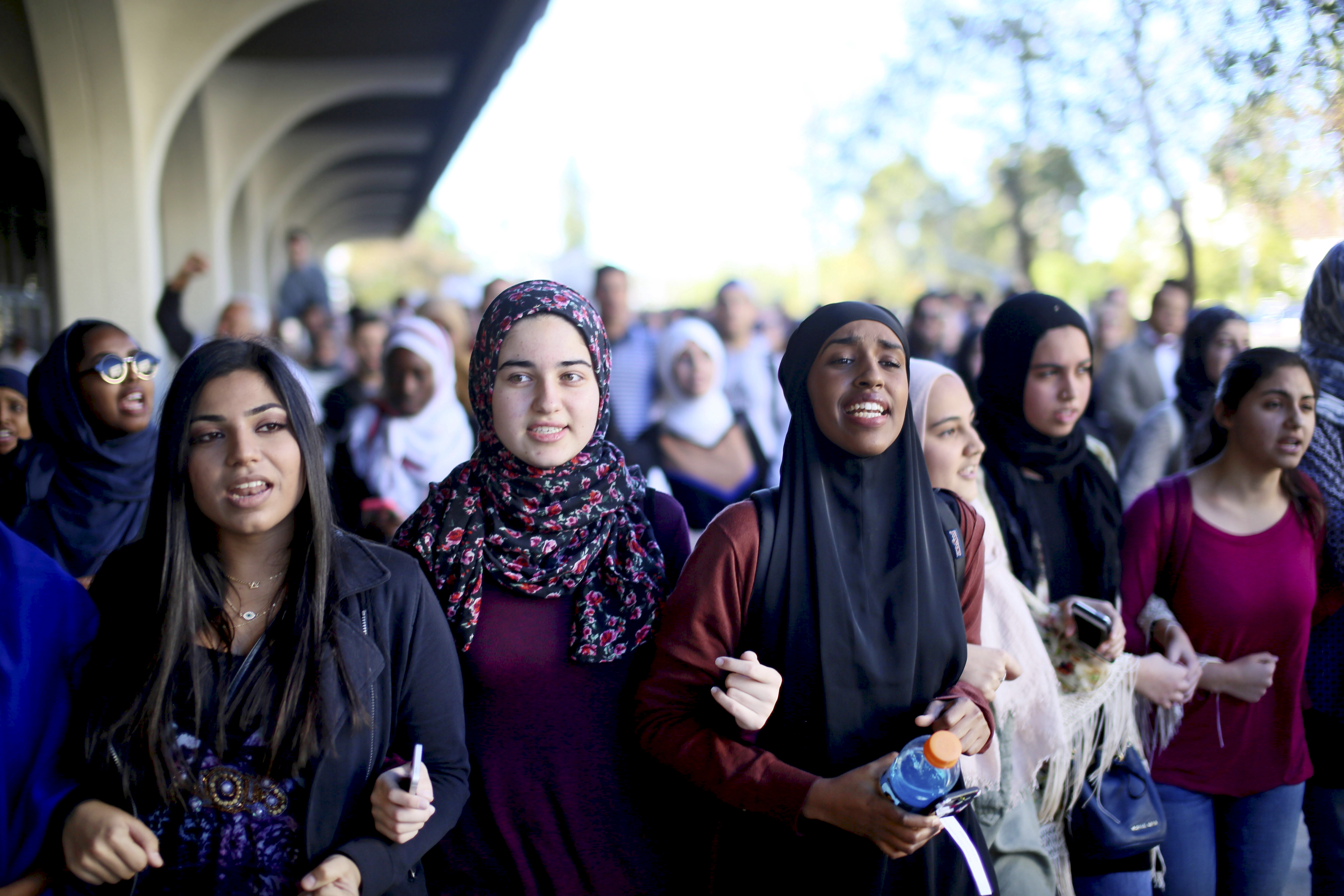Islam is one of the world's major religions, with over 1.9 billion followers globally, making it the second-largest religious group after Christianity. It is a religion based on monotheism, emphasizing the belief in one God, Allah, and following the teachings of the Prophet Muhammad (peace be upon him). The principles of Islam provide a comprehensive way of life, covering spiritual, social, economic, and political aspects. This article aims to provide an in-depth understanding of Islam and Muslims, their beliefs, practices, and contributions to global society.
Despite its widespread presence, Islam and its followers, the Muslims, are often misunderstood due to cultural differences, media portrayals, and lack of accurate information. This article seeks to clarify misconceptions and offer valuable insights into the Islamic faith and its adherents. By exploring the history, core beliefs, practices, and cultural diversity within the Muslim community, readers will gain a clearer perspective on what it means to be a Muslim in today's world.
Whether you are interested in learning about Islam for academic purposes, personal growth, or simply to broaden your understanding of global cultures, this article provides a detailed exploration of the faith and its significance. We aim to present information that is not only accurate but also respectful, ensuring that readers leave with a more informed and balanced view of Islam and Muslims.
Read also:Oprah Winfreys Age A Detailed Exploration Of Her Life Career And Legacy
Table of Contents
- History of Islam
- Core Beliefs of Islam
- The Five Pillars of Islam
- The Quran and Its Teachings
- The Life and Teachings of Prophet Muhammad
- Cultural Diversity Among Muslims
- Common Misconceptions About Islam
- Contributions of Muslims to Global Society
- Interfaith Relations and Dialogue
- Modern Challenges Facing Muslims
History of Islam
The history of Islam dates back to the early 7th century in the Arabian Peninsula. It began with the revelation of the Quran to the Prophet Muhammad (peace be upon him) in 610 CE. This revelation marked the beginning of Islam as a religion and a way of life. Over the next 23 years, the Prophet Muhammad received further revelations, which were compiled into the Quran, the holy scripture of Islam.
Spread of Islam
Islam quickly spread beyond the Arabian Peninsula, reaching as far as Spain in the west and India in the east within a century of the Prophet's death. This rapid expansion was due to both military conquests and peaceful conversions. Today, Islam is practiced across the globe, with significant Muslim populations in countries such as Indonesia, Pakistan, India, Nigeria, and Egypt.
Key points:
- Islam originated in Mecca in the early 7th century.
- The Quran was revealed to Prophet Muhammad over 23 years.
- Muslims believe in one God, Allah, and follow the teachings of Prophet Muhammad.
Core Beliefs of Islam
The core beliefs of Islam revolve around the concept of Tawhid, which is the oneness of God. Muslims believe in one God, Allah, who is merciful, compassionate, and just. Additionally, Islam emphasizes belief in prophets, angels, holy scriptures, the Day of Judgment, and predestination.
Belief in Prophets
Muslims believe in a series of prophets sent by God to guide humanity, including Adam, Noah, Abraham, Moses, Jesus, and Muhammad (peace be upon them all). Each prophet brought a message relevant to their time, culminating in the final revelation through Prophet Muhammad, which is considered complete and universal.
Key points:
Read also:Florence Welch Relationship A Deep Dive Into Love Fame And Personal Life
- Muslims believe in the oneness of God (Tawhid).
- Prophets are considered messengers of God.
- The Quran is the final and complete revelation from God.
The Five Pillars of Islam
The Five Pillars of Islam are the foundation of Muslim life. They represent the core practices that every Muslim is expected to follow. These pillars include the declaration of faith (Shahada), prayer (Salat), charity (Zakat), fasting during Ramadan (Sawm), and pilgrimage to Mecca (Hajj).
Prayer (Salat)
Prayer is a central practice in Islam, performed five times a day. It serves as a constant reminder of one's relationship with God and helps maintain spiritual discipline. Muslims face the Kaaba in Mecca during prayer, symbolizing unity and devotion.
Key points:
- Prayer is performed five times a day.
- Charity (Zakat) is a compulsory act of giving to the less fortunate.
- Fasting during Ramadan is a time for spiritual reflection and self-discipline.
The Quran and Its Teachings
The Quran is the holy book of Islam, revealed to Prophet Muhammad over 23 years. It contains 114 chapters (surahs) and is considered the literal word of God in Arabic. The Quran provides guidance on various aspects of life, including morality, justice, family, and social interactions.
Themes in the Quran
Key themes in the Quran include the oneness of God, the importance of justice, the value of human life, and the concept of accountability. It emphasizes compassion, mercy, and the need for balance in all aspects of life. The Quran also encourages seeking knowledge and understanding the world through scientific inquiry.
Key points:
- The Quran is the primary source of Islamic teachings.
- It emphasizes justice, compassion, and accountability.
- The Quran encourages the pursuit of knowledge and understanding.
The Life and Teachings of Prophet Muhammad
Prophet Muhammad (peace be upon him) was born in 570 CE in Mecca. He received his first revelation at the age of 40 and spent the rest of his life spreading the message of Islam. Known for his integrity and humility, the Prophet Muhammad is considered the perfect role model for Muslims.
Teachings of Prophet Muhammad
Prophet Muhammad's teachings emphasize kindness, humility, and respect for all people. He advocated for social justice, equality, and the protection of the vulnerable. His life serves as an example of how Muslims should conduct themselves in their daily lives.
Key points:
- Prophet Muhammad was born in Mecca in 570 CE.
- He received the first revelation in 610 CE.
- His teachings emphasize kindness, humility, and respect for all people.
Cultural Diversity Among Muslims
Muslims come from diverse cultural backgrounds, speaking different languages and practicing various traditions. While the core beliefs and practices of Islam remain the same, cultural expressions of faith can vary widely. This diversity enriches the global Muslim community and highlights the universality of the Islamic faith.
Cultural Practices
Cultural practices among Muslims include traditional clothing, food, music, and art. These practices often reflect local customs and traditions while maintaining the core principles of Islam. For example, Islamic art often features intricate geometric patterns and calligraphy, symbolizing the infinite nature of God.
Key points:
- Muslims come from diverse cultural backgrounds.
- Cultural practices reflect local customs while maintaining Islamic principles.
- Islamic art often features geometric patterns and calligraphy.
Common Misconceptions About Islam
Despite its widespread presence, Islam is often misunderstood due to cultural differences and media portrayals. Common misconceptions include the belief that Islam promotes violence, suppresses women, and opposes modernity. These misconceptions are often based on stereotypes and lack of accurate information.
Addressing Misconceptions
Islam promotes peace, justice, and equality. It emphasizes the importance of education, science, and social responsibility. The role of women in Islam is often misunderstood, with many Islamic countries providing women with significant rights and opportunities. Modern Muslims actively engage in global issues, contributing to science, technology, and social progress.
Key points:
- Islam promotes peace, justice, and equality.
- Women in Islam have significant rights and opportunities.
- Muslims contribute to global progress in science and technology.
Contributions of Muslims to Global Society
Muslims have made significant contributions to global society in various fields, including science, medicine, mathematics, and philosophy. During the Islamic Golden Age (8th-14th centuries), Muslim scholars made groundbreaking discoveries that influenced the development of modern science and technology.
Scientific Contributions
Muslim scholars such as Al-Khwarizmi, Ibn Sina (Avicenna), and Al-Razi made significant contributions to mathematics, medicine, and chemistry. Their works laid the foundation for many modern scientific concepts. Additionally, Islamic architecture and art have left a lasting impact on global culture.
Key points:
- Muslim scholars made significant contributions to science and medicine.
- Islamic art and architecture have influenced global culture.
- Muslims continue to contribute to global progress in various fields.
Interfaith Relations and Dialogue
Islam encourages respectful dialogue and cooperation with people of other faiths. Interfaith relations are based on mutual respect, understanding, and cooperation. Muslims are encouraged to engage in interfaith dialogue to promote peace and harmony in society.
Building Bridges
Muslims actively participate in interfaith initiatives, working alongside Christians, Jews, Hindus, and others to address global challenges such as poverty, climate change, and social injustice. These efforts highlight the shared values of compassion, justice, and peace among different faiths.
Key points:
- Islam encourages respectful dialogue with people of other faiths.
- Muslims participate in interfaith initiatives to promote peace and harmony.
- Shared values of compassion and justice unite different faiths.
Modern Challenges Facing Muslims
Muslims today face various challenges, including stereotypes, discrimination, and political conflicts. These challenges require a balanced approach, combining traditional Islamic values with modern solutions. Muslims are actively working to address these issues through education, advocacy, and community engagement.
Addressing Challenges
Efforts to address modern challenges include promoting education and awareness, fostering interfaith dialogue, and advocating for human rights and social justice. Muslims are also working to counter extremist ideologies by promoting moderate and peaceful interpretations of Islam.
Key points:
- Muslims face challenges such as stereotypes and discrimination.
- Education and advocacy are key to addressing modern challenges.
- Moderate interpretations of Islam promote peace and coexistence.
Conclusion
In conclusion, Islam is a religion of peace, justice, and compassion, practiced by over 1.9 billion people worldwide. By understanding its core beliefs, practices, and cultural diversity, we can appreciate the richness and universality of the Islamic faith. This article has explored various aspects of Islam and Muslims, addressing common misconceptions and highlighting their contributions to global society.
We invite readers to engage with this article by leaving comments, sharing their thoughts, and exploring other resources on Islam and Muslims. By fostering understanding and respect, we can build a more harmonious and inclusive world for all.
Sources:
- Pew Research Center: "The Future of World Religions: Population Growth Projections, 2010-2050"
- UNESCO: "Islam and Science"
- Oxford Islamic Studies Online


